Empowering Survivors of Domestic Violence
What is Domestic Violence?
Domestic violence is defined as “a pattern of abusive behavior that is used by an intimate partner to gain or maintain power and control over the other intimate partner” (Domestic and Dating Violence, n.d). It can be any action that is physical, sexual, emotional, economic, or psychological. Behavioral intentions can be to intimidate, manipulate, humiliate, isolate, frighten, terrorize, coerce, threaten, blame, hurt, injure, or wound someone.
Domestic Violence in the LGBTQ+ Community
Domestic Violence in the LGBTQ+ community can be experienced at the same rate in similar ways as non-LGBQT+ people. However, different obstacles may impact the LGBTQ+ community.
Fear of Isolation - many community members belong to families with traditional values, oppressive living environments, or religious communities. The abuser may use this isolation and have the person be more dependent on them
Shame of Identity - the abuser may play into the person's internalized homophobia and shame them for their pronouns or chosen name. The abuser will use power and control to keep the person in isolation
Fear of not receiving services - In the LGBTQ+ community, minimization of domestic abuse can happen meaning that others might not view domestic abuse in the LGBTQ+ community as legit.
Variation of legal protection - receiving legal resources for domestic violence can vary depending on the state. Impact and state reports can be found here.
What to do if you know of someone experiencing Domestic Violence
If you know of someone who is in a domestic violence situation, it’s important to consider the wants and needs of the person in the situation. They may or may not have acknowledged that they are in a bad situation. Until they acknowledge this and want help, honoring their wishes and boundaries is important in establishing yourself as a safe person. Below are several steps you can take to help:
Ask them what they want - Is there some way you can support them?
Document the abuse every time you hear about it
Create a safety plan with the person experiencing abuse if they are ready
Knock on their door to make an excuse of why you are there as a way to interrupt whatever is happening
“I just ran out of eggs. Do you have any I can use?”
Reach out to the YWCA if you need additional support
Call: (616) 454-9922
Location: 25 Sheldon Avenue SE Grand Rapids MI, 49503
How the YWCA is addressing Domestic Violence
Jenna Schook, the Volunteer Advocate Program Manager, enjoys connecting with survivors when they come in. The YWCA provides services for survivors of domestic violence and dating abuse. The organization is unique in having a Nurse Examiner Program that provides medical forensic exams at no cost.
When a survivor reaches out to the YWCA, they will first talk to a nurse to schedule an exam. During the appointment, they will meet with an advocate (emotional supporter) and nurse while talking over any questions or concerns. A survivor has control over how the exam will go. Nothing is going to happen without the consent of the survivor. If the survivor chooses to give consent to having the full exam, the following steps will take place:
History about the details of the assault or abuse that took place
Physical exam
Discussion over possible medications, safety planning, or different resources
Volunteer with the YWCA
Volunteer Advocates are people who walk alongside survivors throughout the entire process. While anyone who is interested in being a volunteer is encouraged to reach out to the YWCA, volunteers within the LGBTQ+ community are needed. Volunteers within the reflected communities can experience a special connection with survivors that those outside of these communities cannot make. Additional healing and comfort can arise from survivors being matched with someone who reflects their unique identity.
Some essential duties for volunteer advocates include answering helpline referrals when a sexual assault call is made and being in the exam room with the survivor when the nurse calls. Volunteers can generally expect to be on call for one 12 hour shift. Around the holidays, volunteers can expect two 12 hour shifts. If you are interested in being a volunteer, reach out to Jenna Schook at jschook@ywcawcmi.org or go to the YWCA website and fill out an application.
Lgbtq+ specific Resources
Domestic Abuse and its impact on Transgender and Nonbinary Survivors
LGBTQ+ Sexual Violence Prevention and Response Toolkit

